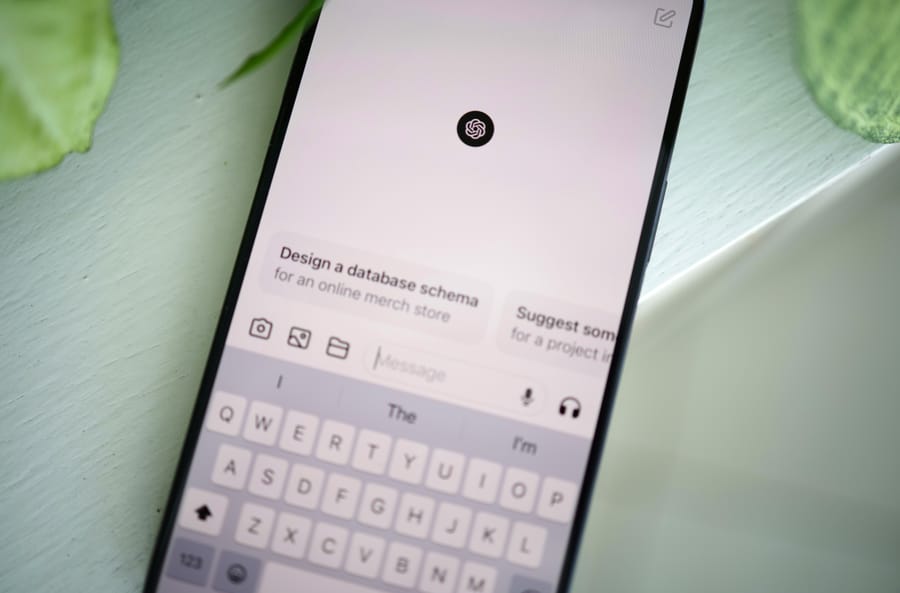In a previous blog, we examined the file handling capabilities of leading GenAI interfaces. That analysis detailed which formats they could process reliably and where they encountered difficulties—particularly with structured data and technical file types. Since then, the landscape has shifted. While downloadable file generation still faces notable constraints, input file handling has improved substantially.
To understand the versatility of these interfaces, we evaluated their ability to handle a range of common and specialised file formats. Our analysis covered plain text (.txt), Microsoft Word documents (.docx), PDFs (.pdf), images (.png/.jpg), structured data formats like JSON (.json), Excel spreadsheets (.xlsx), and comma-separated values (.csv). We also tested support for technical formats such as LaTeX (.tex) for mathematical notation, Python scripts (.py) for code, PowerPoint presentations (.pptx), and even the more unique .dat files often used for raw data storage. This broad assessment reveals how well these interfaces accommodate diverse inputs in real-world applications.
Supported input file formats in leading GenAI interfaces
| Interface | .txt | .docx | .png/.jpg | .JSON | .xlsx | .csv | .LaTeX | .py | .pptx | .dat | |
|---|---|---|---|---|---|---|---|---|---|---|---|
| ChatGPT | Yes | Yes | Yes | Yes | Yes | Yes | Yes | Yes | Yes | Yes | Yes |
| Claude | Yes | Yes | Yes | Yes | Yes | Yes | Yes | Yes | Yes | No | Yes |
| Copilot | Yes | Yes | Yes | Yes | Yes | Yes | Yes | No | No | Yes | No |
| DeepSeek | Yes | Yes | Yes | Yes | Yes | Yes | Yes | No | Yes | Yes | No |
| Gemini | Yes | Yes | Yes | Yes | Yes | Yes | Yes | No | Yes | Yes | Yes |
| Grok | Yes | Yes | Yes | Yes | Yes | Yes | Yes | Yes | Yes | Yes | Yes |
| LeChat (Mistral) | Yes | Yes | Yes | Yes | No | Yes | Yes | No | Yes | No | No |
| Qwen | Yes | Yes | Yes | Yes | No | Yes | Yes | No | No | Yes | No |
ChatGPT, Grok, and Gemini now handle all tested formats without limitations, including more demanding ones like .dat and .pptx. Claude has improved markedly in structured formats, with .xlsx and .csv now loading reliably, though .pptx remains unsupported. Copilot added .pptx support but still lacks .latex and .py. DeepSeek is stable and fast but continues to miss .latex and .dat. LeChat (Mistral) and Qwen improved stability but still have several unsupported formats.
While format coverage has improved, there are still cases where interfaces claim to support certain file types but fail to process them correctly. For example, Mistral accepts .json uploads without error, yet in our tests it could neither parse nor meaningfully display the content. Similar issues occasionally appear with other formats, especially when files contain complex structures, embedded encodings, or non-standard data layouts. This means that checking both “upload” and “readability” is essential—a format may be technically accepted at upload, but still unusable for the intended task.

The gap between top-performing and mid-tier interfaces has narrowed on the input side, though downloadable file generation remains the main limitation across the board. It is also important to note that file upload capacity is not solely determined by context window size: Claude offers up to 200k tokens (around 500 pages), while DeepSeek provides a 64k context length. In terms of the number of files that can be uploaded simultaneously, ChatGPT, Gemini, and Grok each allow up to 10 files, Mistral supports 8, Qwen 5, and Copilot only 3. These practical constraints can significantly influence real-world workflows, regardless of nominal format support.
Downloadable output file generation in leading GenAI interfaces
When it comes to producing fully functional, downloadable files, the differences between interfaces are clear. ChatGPT is currently the only one that can reliably generate valid files across all tested formats. Grok can create scripts and plain text (.txt, .py) without issue, but other formats such as .docx or .pptx appear corrupted and cannot be opened. Claude can also produce scripts and plain text, but does not support generating other file types as valid, downloadable documents.


Gemini does not generate downloadable files directly, but offers a major advantage through seamless integration with Google Drive, Docs, and Sheets, enabling content to be saved there instead.

By contrast, DeepSeek, Qwen, Mistral, and Copilot are unable to produce valid downloadable files for the tested formats, even if they can generate the content as plain text.

Recommendations
While input file handling has improved markedly—especially for formats like .xlsx, .csv, and .dat—downloadable output generation remains limited, with ChatGPT the only interface producing valid files across all tested formats. Grok and Claude work well for scripts and plain text, Gemini benefits from Drive and Docs integration, while others still require external conversion. Usability also depends on correct parsing, not just format acceptance, and is further shaped by file upload limits such as Claude’s 200k tokens, DeepSeek’s 64k, or per-session caps (ChatGPT, Gemini, Grok: 10 files; Mistral: 8; Qwen: 5; Copilot: 3). When selecting an interface, consider not only supported formats but also reliability in processing them, output compatibility, and practical upload constraints.







